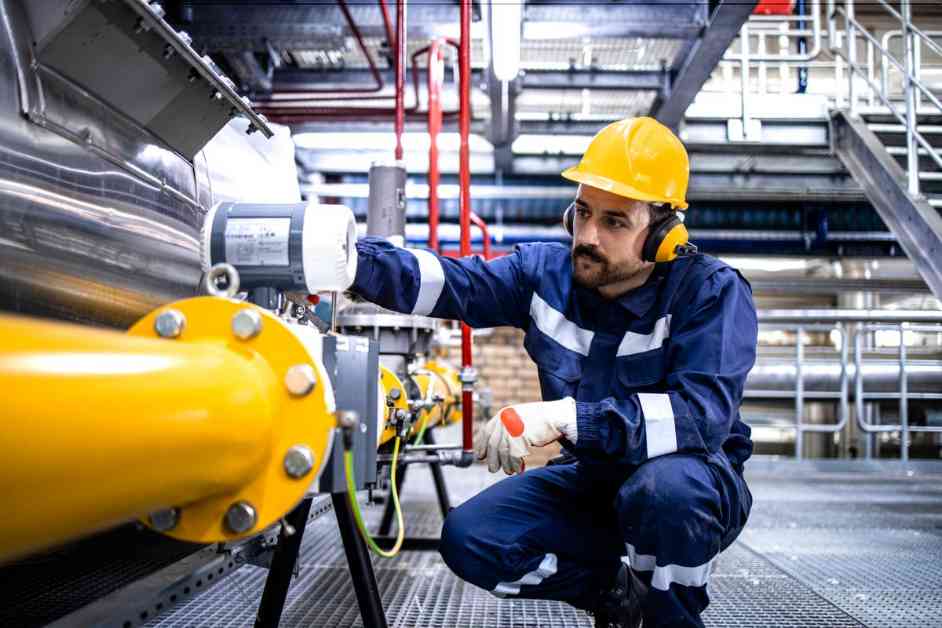Gas Workers Strike Due to Public Safety Concerns: Emergency Response in Jeopardy
In a concerning development, hundreds of gas emergency workers in England have voted to go on strike due to working conditions that they believe pose a serious risk to public safety. The workers at Northern Gas Networks (NGN) are set to walk out, citing long hours and fatigue as major issues that need to be addressed. These workers play a crucial role in fixing gas leaks across the north of England, and their concerns about the impact of their working conditions on public safety cannot be ignored.
The Dangers of Fatigue
The GMB Union, representing the gas workers, has raised alarm about the dangers posed by long hours and fatigue on the job. According to the union, the workers are constantly on call to fix gas leaks, often working around the clock without adequate rest periods. This continuous strain on the workers not only puts their own health at risk but also jeopardizes the safety of the general public. Working with flammable and toxic gas leaks while fatigued significantly increases the likelihood of mistakes that could have catastrophic consequences.
Andrew Aldwinkle, GMB Organiser, expressed concerns about the lack of consideration for worker fatigue by NGN management. He emphasized that the company’s failure to address these issues puts both the workers and the public in danger. The union has attempted to raise these concerns with the management, but their efforts have been met with indifference. The workers feel that their grievances have been ignored, leading them to the decision to take industrial action in order to demand better working conditions that prioritize both their safety and that of the public.
Challenges Amid the Pandemic
Adding to the workers’ frustrations is the lack of sick pay provided by NGN for those who may contract Covid-19. This issue has only exacerbated the already high levels of stress and uncertainty faced by the workers, as they are left without financial support in case they fall ill. The union’s assertion that many workers feel compelled to continue working even with Covid-19, including in high-risk environments like care homes, highlights the urgency of addressing these concerns to protect both the workers and the communities they serve.
The ongoing pandemic has further underscored the importance of ensuring the health and safety of essential workers like gas emergency engineers. The lack of sick pay and the pressures of working in hazardous conditions have created a challenging environment for these workers, who are tasked with responding to emergencies and ensuring the safe operation of gas systems. It is crucial that their concerns are taken seriously and that measures are put in place to support their well-being during these unprecedented times.
Seeking Resolution
Despite the looming strike, NGN chief executive Mark Horsley remains committed to ensuring the continuity of gas services for customers in the region. He acknowledges the concerns raised by the workers but maintains that the company has taken significant steps to address their needs, including substantial salary increases over the past four years. While the company is open to resolving the dispute with the union, Horsley emphasizes the importance of balancing the demands of the workers with the company’s obligations to its customers and the long-term viability of the business.
The standoff between NGN management and the workers highlights the complex dynamics at play in the gas industry, where the need for reliable and safe gas services must be balanced with the well-being of the workers who provide them. As negotiations continue, it is essential that all parties involved prioritize open communication, mutual respect, and a commitment to finding a solution that addresses the concerns of the workers while maintaining the integrity of the gas services that communities rely on.
In conclusion, the strike by gas emergency workers at NGN underscores the importance of prioritizing worker safety and well-being in essential industries. The challenges faced by these workers are a stark reminder of the risks they face in their daily work and the need for adequate support and protections to ensure their health and safety. As the negotiations between the workers and NGN management continue, it is crucial that all parties work together to find a resolution that upholds the highest standards of safety and service for the benefit of both the workers and the public they serve.












